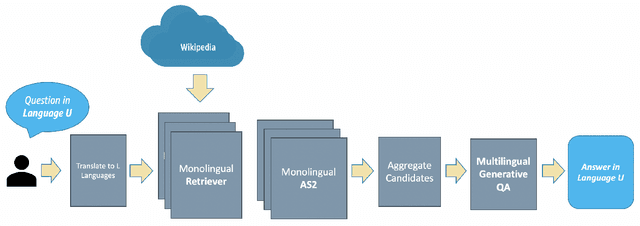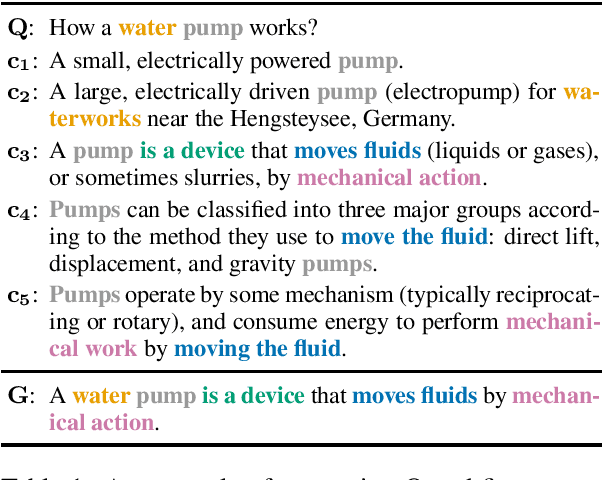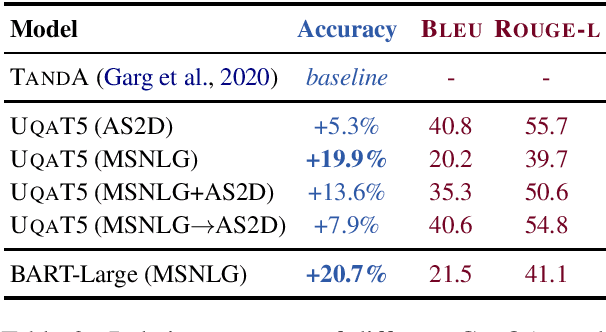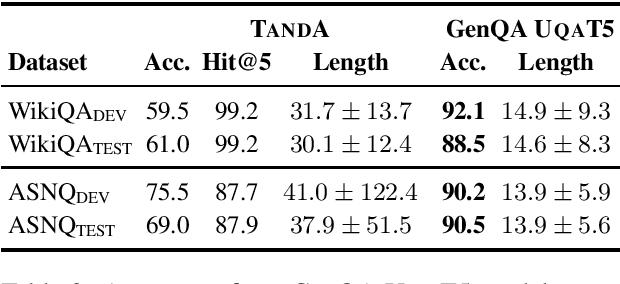Eric Lind
Ensemble Transformer for Efficient and Accurate Ranking Tasks: an Application to Question Answering Systems
Jan 15, 2022



Abstract:Large transformer models can highly improve Answer Sentence Selection (AS2) task, but their high computational costs prevent their use in many real world applications. In this paper, we explore the following research question: How can we make the AS2models more accurate without significantly increasing their model complexity? To address the question, we propose a Multiple Heads Student architecture (MHS), an efficient neural network designed to distill an ensemble of large transformers into a single smaller model. An MHS model consists of two components: a stack of transformer layers that is used to encode inputs, and a set of ranking heads; each of them is trained by distilling a different large transformer architecture. Unlike traditional distillation techniques, our approach leverages individual models in ensemble as teachers in a way that preserves the diversity of the ensemble members. The resulting model captures the knowledge of different types of transformer models by using just a few extra parameters. We show the effectiveness of MHS on three English datasets for AS2; our proposed approach outperforms all single-model distillations we consider, rivaling the state-of-the-art large AS2 models that have 2.7x more parameters and run 2.5x slower.
Cross-Lingual GenQA: A Language-Agnostic Generative Question Answering Approach for Open-Domain Question Answering
Oct 14, 2021



Abstract:Open-Retrieval Generative Question Answering (GenQA) is proven to deliver high-quality, natural-sounding answers in English. In this paper, we present the first generalization of the GenQA approach for the multilingual environment. To this end, we present the GenTyDiQA dataset, which extends the TyDiQA evaluation data (Clark et al., 2020) with natural-sounding, well-formed answers in Arabic, Bengali, English, Japanese, and Russian. For all these languages, we show that a GenQA sequence-to-sequence-based model outperforms a state-of-the-art Answer Sentence Selection model. We also show that a multilingually-trained model competes with, and in some cases outperforms, its monolingual counterparts. Finally, we show that our system can even compete with strong baselines, even when fed with information from a variety of languages. Essentially, our system is able to answer a question in any language of our language set using information from many languages, making it the first Language-Agnostic GenQA system.
Answer Generation for Retrieval-based Question Answering Systems
Jun 02, 2021


Abstract:Recent advancements in transformer-based models have greatly improved the ability of Question Answering (QA) systems to provide correct answers; in particular, answer sentence selection (AS2) models, core components of retrieval-based systems, have achieved impressive results. While generally effective, these models fail to provide a satisfying answer when all retrieved candidates are of poor quality, even if they contain correct information. In AS2, models are trained to select the best answer sentence among a set of candidates retrieved for a given question. In this work, we propose to generate answers from a set of AS2 top candidates. Rather than selecting the best candidate, we train a sequence to sequence transformer model to generate an answer from a candidate set. Our tests on three English AS2 datasets show improvement up to 32 absolute points in accuracy over the state of the art.
 Add to Chrome
Add to Chrome Add to Firefox
Add to Firefox Add to Edge
Add to Edge